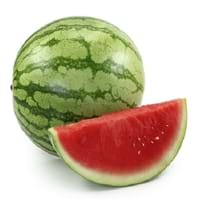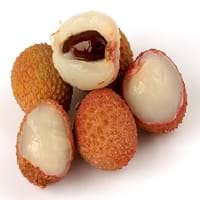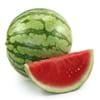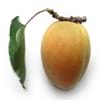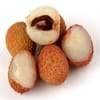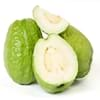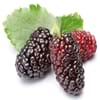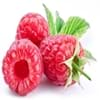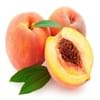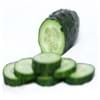Health Benefits
Anti-aging benefits, Anti-inflammatory properties, Asthma treatment, Body hydration, Cancer prevention, Digestive aid, Skin cleansing, Skin rejuvenation
Cancer prevention, Cures gastro-intestinal troubles, Heart care, Muscle pain relief, Prevents blindness from diabetes
General Benefits
Anti-inflammatory properties, Body hydration, Controls blood pressure, Digestive aid, Maintains healthy cholesterol level
Boosts immune system, Digestive aid, Fights against infections, Helps in weight loss, Maintains healthy cholesterol level, Strengthens bones
Skin Benefits
Anti-aging benefits, Brightens and lightens complexion, Hydrates skin
Anti-aging benefits, Skin rejuvenation
Hair Benefits
Promotes longer and healthier hair, Regulates hair growth
Promotes longer and healthier hair, Protects hair
Allergy Symptoms
Breathing difficulty, Decrease in blood pressure, Dizziness, Eczema, Hives, Runny nose, Swelling of mouth, tongue or lips, Watery eyes
Coughing, Diarrhea, Headaches, Hives, Itching, Labored Breathing, Nausea, Runny nose, Swelling of mouth, tongue or lips, Vomiting, Watery eyes
Side Effects
Allergic reaction, Bloating, Diarrhoea, Indigestion, Intestinal gas, Nausea, Vomiting
May cause abdominal pain, Diarrhoea, Mouth irritation, Throat irritation, Weight gain
Best Time to Eat
As a snack in the late afternoon, Don't consume at night and before bed, Eat the fresh ones, avoid mixing with any other foods, don't eat after meal., Strictly avoid empty stomach
As a snack in the late afternoon, Don't consume at night and before bed, Eat the fresh ones, avoid mixing with any other foods, don't eat after meal., Morning time (before lunch), Strictly avoid empty stomach
Vitamin B5 (Pantothenic Acid)
Vitamin C (Ascorbic Acid)
Vitamin K (Phyllochinone)
Phytosterol
Not Available
Calories in Fresh Fruit with Peel
Not Available
Not Available
Calories in Fresh Fruit without Peel
Calories in Frozen Form
Not Available
Calories in Canned Form
Not Available
Type
Berry, Melon
Tree fruit, Tropical
Season
Summer
Spring, Summer
Varieties
Sugar Baby, Sangria, Golden Midget, Starlight, Jubilee, Starbrite, Extazy, Stars 'n' Stripes, Mickylee, Yellow Baby, Yellow Doll, Little Baby Flower, Sweet Favorite and Cream of Saskatchewan
Emperor fruit, Mauritiu, Sweet Heart, Brewster, Haak Yip and Bengal
Color
Canary yellow, Coral red, Orange, Salmon yellow, Scarlet red, White
Bright red, Pink red
Inside Color
Red
Greyish-white
Taste
Sweet
Crunchy, Juicy, Sweet
Origin
Southern Africa
China, Indonesia, Philippines, Vietnam
Soil Type
Sandy, Well-drained
Alluvial, Loam, Well-drained
Climatic Conditions
Dry, Hot
Absence of strong wind, Cold, Dry, Without frosts
Facts about
- Watermelon contain 91% of water.
- In Japan & Chine, watermelon is a popular gift to bring a host.
- Entire watermelon is edible, even the rinds & seeds.
- There are more than 1200 varieties grown in the world.
- The seed of Lychee fruit is toxic & can adversely affect the digestive system.
- This fruit gives a smoky flavor when eaten dried.
- This fruit is a symbol of love and romance in China.
Other Countries
Algeria, Brazil, Egypt, Iran, Kazakhstan, Mexico, Spain, Turkey, United States of America
Australia, India, South Africa, Thailand, United States of America
Top Importer
Germany
Hong Kong
Botanical Name
Citrullus Lanatus
Litchi chinensis
Synonym
Citrullus vulgaris
Nephelium litchi
Subkingdom
Tracheobionta
Tracheobionta
Division
Magnoliophyta
Magnoliophyta
Class
Magnoliopsida
Magnoliopsida
Subclass
Dillenhidae
Rosidae
Order
Cucurbitales
Sapindales
Family
Cucurbitaceae
Sapindaceae
Species
C. lanatus
L. chinensis
Generic Group
Gourd
Soapberry
